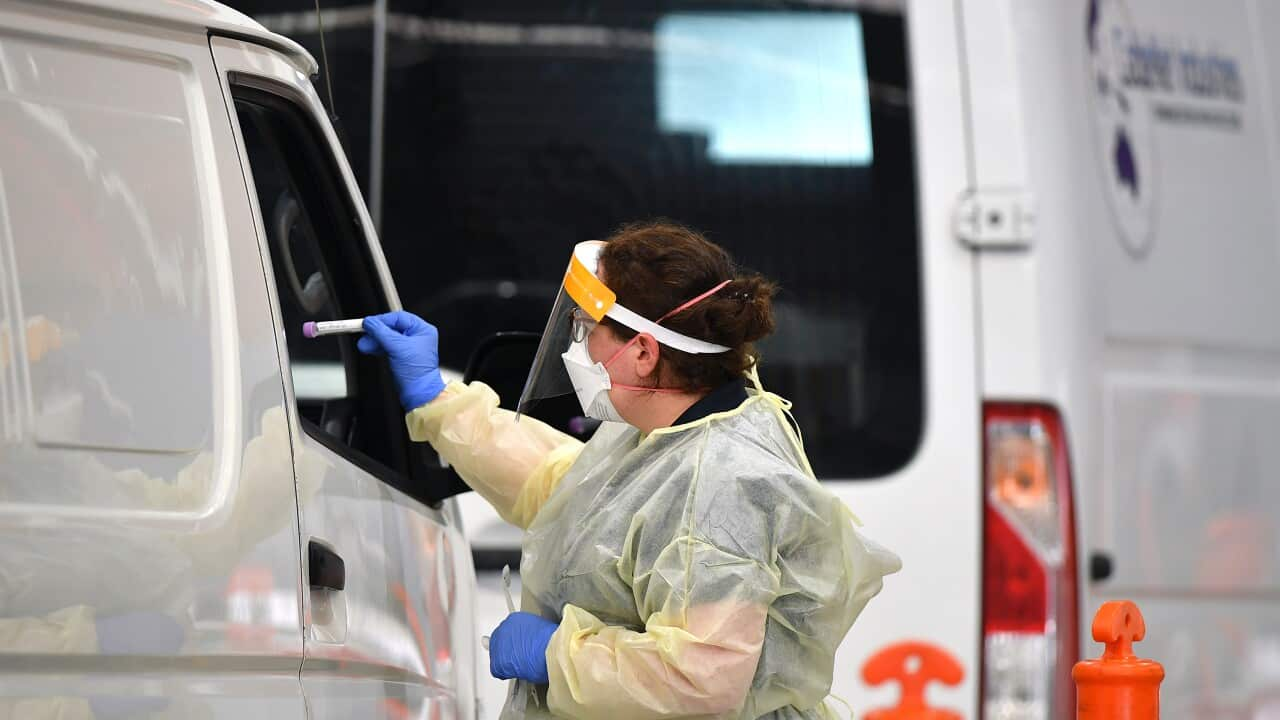Australia has recorded another 56 COVID-19-related deaths, while advocates say people with disability are being ignored and left behind as the nation recovers from the pandemic.
NSW recorded 21 fatalities; Victoria reported 14; there were 11 in Queensland; six in Western Australia and four in South Australia on Thursday.
Some 1,529 people with COVID-19 are hospitalised in NSW, including 62 in intensive care units (ICU), while 492 patients in Victorian hospitals have the virus, including 29 in ICU.
In Queensland hospitals, 467 patients have COVID-19, including 14 in ICU, and 271 people with the virus are in Western Australia hospitals, including nine in ICU.
Some 218 patients with COVID-19 are hospitalised in South Australia, including 11 in ICU; 46 are in Tasmanian hospitals, including three in ICU, and 33 people with the virus are hospitalised in the Northern Territory, including one in ICU.
The figures come as disability support groups call on the incoming government to establish a COVID-19 recovery plan for people with special needs as the virus continues to surge in the community.
"People with an intellectual disability are at high risk from COVID-19 and many have missed out on essential support during the pandemic," Inclusion Australia chief executive Catherine McAlpine said.
"We want all disability support providers to ensure that people with disability can access support during an emergency. People with an intellectual disability must also have equal access to health care if they get COVID-19, as well as vaccines."
More than two years after the pandemic first hit, public health measures have been lifted without a specific plan to protect people with disability.
Dominic Golding, policy officer at the National Ethnic Disability Alliance, said COVID-19 had been particularly devastating for marginalised groups.
"The pandemic isn't over for our community and we need a recovery plan to make sure people with disability are not left behind," Mr Golding said.
"Migrant and refugee people with disability need specific information, services and support to keep our community safe from COVID-19."
A proposed plan by disability organisations cites the need for increased physical and mental health support, continued access to remote learning and work and support for people with long COVID.
Three new Omicron subvariants detected in Australia
Three new Omicron subvariants have reached Australia and health authorities say people who contract the virus should wait three months before getting their next COVID-19 vaccination.
Associate Professor Stuart Turville from the UNSW's Kirby Institute said on Wednesday that Omicron subvariants BA.2.12.1, BA.4 and BA.5 have been detected in Australia.
Authorities are warning this winter season is likely to see a spike in COVID-19 cases and flu as restrictions that have suppressed the circulation of both viruses are phased out.
The latest advice from the Australian Technical Advisory Group on Immunisation recommends people wait three months after a confirmed COVID-19 infection and then receive their next vaccine dose as soon as possible.
The advice, issued last week, applies to all people and for all COVID-19 vaccines.
Professor Turville said the severity and transmissibility of the new Omicron subvariants had yet to be determined.
The arrival of Omicron BA.1 and BA.2 were marked by their ability to significantly evade a previous antibody response through past infection and/or vaccination, but the impact was less severe.
The new subvariants BA.4, BA.5 and BA2.12.1 are likely to displace BA.1 and BA.2 in Australia.
"We will need to study this over time to see if their advantage is one of fitness/transmissibility, and/or their ability to be more slippery to existing antibodies," Professor Turville said.
"As with all variants, the key parameter to watch is disease severity and this data takes time to accumulate.
"There is still a lot about this virus that is unknown and there are many paths it has the potential to take."











